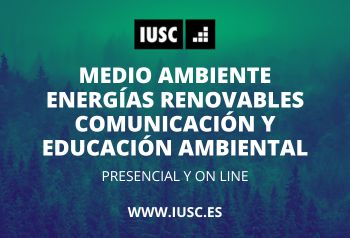The ruling of the Administrative Court Number 1 of Soria declares the nullity of the EIS and the integrated environmental permit of the macro farm due to the serious shortcomings of the environmental impact study of the project, which did not comprehensive assessment of impacts on the Natura 2000 network and the SPA “Monteagudo de las Vicarias” which includes the macro farm, nor has any analysis been made of the possible cumulative or synergistic effects in relation to other projects owned by the developer in the area.
In addition, the court orders that the project be granted a permit for exceptional use on rural land, which it did not have, as a preliminary step towards obtaining the municipal building permit. Other reasons for the nullity of the administrative act authorizing the exploitation were the shortcomings in the processing and content of its manure management planthe extension of which has not been submitted to public information, or present a deratization plan using rodenticides such as Warfarin, which are banned in Spain.
Although the verdict can still be appealed, environmental associations will, within the framework of the legal proceedings and before the administration of Castilla y León, argue for the need for a adequate environmental impact assessment of the project due to its impact on the Natural 2000 network, the importance of carrying out strategic environmental assessments in cases of joint development of projects, such as the canceled project, in the same area and belonging to the same promoter, or the consideration of this type of project development as industrial and incompatible with protected areas.
Huge ecological value of the area
An NGO filed the lawsuit in September 2024, alleging serious irregularities in the authorization process. The macro farm, with a capacity of 6,990 incubators for breeding animals, would come up within the SPA “Monteagudo de las Vicarías”, part of the Natura 2000 network. This area is home to at least 26 species of protected birds. included in the List of Wild Species Under a Special Protection Regime (21) or the Spanish Catalog of Endangered Species (5), such as the Little Bustard (endangered by extinction), the Common Egyptian Vulture and the Montagu’s Harrier. In addition, the project would affect priority habitats in the European Union, such as substeppic areas of grasses and grasslands, which are crucial for the biodiversity of the area.
According to David de la Bodega Zugasti, head of the NGO’s legal program, “The result obtained by this ruling frames and recognizes the organization’s objective for a correct environmental assessment of the various facilities and projects authorized in the Natura 2000 network, in order to promote economic and social development in these areas compatible and at the same time guarantee their protection.”


The environmental organization reiterates its firm commitment to work with governments and productive sectors to find alternatives respect the environment and at the same time are a source of wealthbut this requires compliance and strengthening of regulations that protect areas, such as the Natura 2000 network, which guarantees the conservation of the rich biodiversity of Spain and Europe.
For this reason, it has leveled accusations at other macro-agriculture projects The authorization process is ongoing and these are planned in the Natura 2000 network of Castilla y León, and therefore calls on the Government of this Autonomous Community and the Territorial Environmental Services to carry out a comprehensive assessment of the environmental impacts in these areas.
This should not be forgotten in the ruling of the administrative court The impact assessment report recognizes numerous shortcomings on the Natura 2000 Network (IRNA), issued by the Territorial Environment Agency of Soria for the macro farm and by extension in the EIA on which the permit is based, both annulled.
Macro farms are not sustainable developments
Several environmental organizations warn of the serious ecological and social consequences of the industrial livestock farming model based on macro pig farms. This type of farm causes high nitrate pollution due to inadequate slurry management. seriously affecting the quality of water and soil, as evidenced by the increasing restrictions imposed by the European Union on Spain due to the pollution of aquifers.
In addition, This model is a major emitter of greenhouse gases, with industrial pig farming responsible for 22% of emissions from the agricultural sector in Spain. As indicated Ana Márquez, energy and climate technician at SEO/BirdLife: “It is contradictory to continue to focus on this intensive model when we urgently need to decarbonize the agricultural sector, the fourth largest emitting sector in Spain. “Continuing to authorize macro farms is a decision that goes against the climate and environmental goals we must achieve to stop the climate crisis and biodiversity loss.”
In social terms, macro farms generate few jobs and concentrate economic benefits in few hands, while negative impacts, such as pollution and pressure on local services, fall on local rural communities. This contributes to perpetuating desolation and inequality in rural areas, rather than promoting sustainable development that benefits these populations.
The NGO advocates an extensive, sustainable and local livestock farming model, that makes it possible to reduce climate and environmental impacts while generating employment and added value in rural areas, strengthening their social and economic structure.
That was the case in the procedure important cooperation and contribution of information of the Armazón Cultural Association, the Soriana Association for the Defense and Study of Nature (ASDEN) and other local platforms that oppose the installation of the macro farm.

